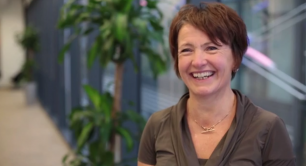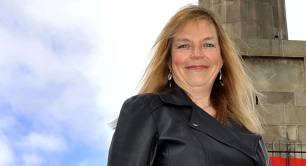Collection: Inspired Leaders
Lynch's leadership: how to turn around a failing social enterprise

When Karen Lynch joined ethical bottled water company Belu in late 2009 as its marketing director, the business was in financial freefall. Since 2004, when the company was launched, it had failed to find a sustainable business model – and had accumulated a loss of £1.9m.
Asked to put together a recovery business plan for the organisation’s advisory board, Lynch went about planning for and then putting into action a radical redesign of the company, which saw her take over as its CEO, rebrand its water bottles and reorganise its entire distribution system in less than a year.
Pioneers Post spoke to Lynch about how she successfully managed to lead a company undergoing such drastic change in such a short space of time.
Pioneers Post: What did you decide to concentrate on changing first when you took over at Belu?
Karen Lynch: I didn’t have the luxury of time to change things incrementally – if I had tried to we would have run out of money and there would have been no business at all. The first thing I did though was make a very clear plan about which people, suppliers and products in the company were right to be a part of the changed organisation going forward.
You don’t have to take everyone and everything with you. For example, there is no point in training up a team of 20 people to become part of the new mindset if they are not integral to the new way you will be doing business.
When I first came to Belu there was a core team of six, plus freelance staff and supporting agencies all dependant on Belu for work. Initially, we had to reduce the core team headcount to three. This was a difficult period, particularly taking over as CEO. Making smart decisions around resources is really important, and the hardest ones to take are often the ones that we avoid.
PP: You made a lot of big changes in a short space of time, how did you get the team and board to have confidence in you?
KL: The starting point was that if we do nothing we all know what is going to happen here - the business will have no future. It was also important to talk about and concentrate on how the business could make a social difference and the changes that would be necessary to achieve that. A big challenge in leadership is always doing the right thing, even if it is a painful process.
PP: What is the biggest mistake people often make when leading a small social business like Belu?
KL: Overexposing themselves through borrowing. In this sector there are a lot of people trying to lend businesses money. Finding funds is not the hardest part - it’s getting the right funds that is the biggest challenge.
If a certain pot of funding is more expensive than another option, but the person or organisation lending it to you could be a critical part of your business then this should also be part of your analysis. But always remember that if borrowing is going to cripple the business because you will be constantly paying it back, then this will make it impossible to ever grow.
PP: If you had to do it all again, what would you do differently next time?
KL: When I look at the old Belu and compare it to the new one, and what changed in just 12 months, I think that only a mad person would do that. But we had no alternative. I think the advice I would give others though is that if I did have the luxury of more time I would have done things in two phases. Rather than launching an entirely new brand at the same time as trying to establish a new customer base, I would get existing customers excited about the new brand first, and use this as a platform to then push it to new ones.
PP: How do you deal with stress?
KL: Wine normally! I work remotely and travel to London when I need to. I always plan to work a four-day week, which gives me more flexibility to do things like catch up with tasks at work that wouldn’t otherwise get done on the fifth day, or spend time with family.
But my team and I often talk about stress as a good thing. It’s a sign that you are engaged and clear about the value of what you are trying to do.
PP: Who do you look up to professionally?
KL: I’m lucky that I’ve got many people on our board and investors who I look up to, such as Gordon Roddick, co-founder of the Body Shop - who is amazing to talk to about branding and the concept of ethical brands. At Belu we also look up to Sophie Tranchell, managing director at Divine Chocolate – which is a great example that it is possible to be a social enterprise and go mainstream.
PP: Do you ever doubt yourself?
KL: Everybody doubts themselves. For example, I do a lot of public speaking as part of my day-to-day job but I recently had to do a speech at the Houses of Parliament and my knees were knocking like anyone’s would be. I try to deal with doubt by just making a commitment to achieving something and then being confident that once I’ve done that I will find a way to make it happen.
Karen’s top three tips for leading an organisation through change
1. Get the vision and plan clear and know exactly what you want to achieve, why you want to do it, and how you are going to go about it.
2. Be clear with staff on what their roles are and what they will accountable for - people don’t like floundering.
3. Collaborate and build partnerships - sharing learning and ideas with others can be incredibly valuable for any business.
Before and after: How the stats changed under Lynch’s leadership
Turnover:
2009: £2.1m
2013: £3.6m
Profit:
2009: Loss of £641
2013: Profit of £529,214
Social impact:
2009: No partnership with a charity - but accrued £35,000 that would be donated at a later date
2013: £193,000 donated to Water Aid
Headcount:
2009: Nine employees
2013: Seven employees (after decreasing to three in 2010)
The Pioneers Post Business School content is delivered in partnership with Inspire2Enterprise. I2E provide a unique, free-to-access social enterprise support, information and advice service – from start-up through to initial growth and beyond. Call them on 0844 9800 760 or visit www.inspire2enterprise.org to find out more.



